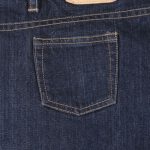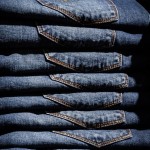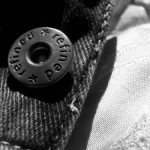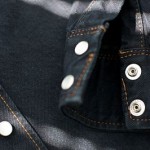Ever wonder why some jeans are softer than others? Some of them may a fluffy and supple texture, whereas others have a stiff and rigid texture. Being that all jeans are made of the same material — denim — conventional wisdom may lead you to believe that they should feel the same. But this isn’t the case. Some jeans are softer than others. In this post, we’re going to investigate why some jeans are softer than others.
Washed Denim
Jeans made of washed denim are typically softer than those made of dry denim. Washed denim jeans are distinguished from dry denim jeans by the way in which they are produced. They are produced using denim that’s submerged in water. In comparison, dry denim jeans are made of dry denim that isn’t washed or otherwise submerged in water.
It’s important to note that there are two types of washed denim jeans:
- Soft washed: The denim is submerged in cold water.
- Hard washed: The denim is submerged in hot water.
Since they are made of pre-soaked denim, washed denim jeans tend to be softer than their dry denim counterparts. Submerging denim in water helps to soften it. When exposed to water, denim becomes softer and suppler. Hard washed jeans are the softest, but even cold washed jeans are noticeably softer than dry denim jeans. Whether hot or cold, water will soften jeans.
Quality of Denim
Some jeans are soft simply because they are made of high-quality denim. You have to remember that denim is comprised of cotton. Many people assume that denim is a synthetic material that’s manufactured in a factory. While it might be manufactured in a factory, it’s actually just cotton.
The only difference between denim and cotton is its weaving pattern. Denim is woven with the weft going under multiple warp threads. This weaving pattern creates diagonal ribbing. Because denim is made of cotton, jeans are naturally soft. With that said, denim quality can vary.
Some types of denim are high quality, whereas others are low quality. High-quality denim usually feels softer than low-quality denim. The higher the quality, the softer the texture. This is why you should focus on choosing high-quality jeans. You should still consider the price, but a cheap pair of jeans won’t offer much value if they are stiff and uncomfortable to wear.
Stone Washing
Stone washing can lead to a softer pair of jeans. Stone washing is a process in which jeans are battered with stones during production. It may sound unusual, but it’s highly effective at creating soft jeans. With stone washing, new jeans are placed inside a heavy-duty dryer where they tumble around with dozens of stones. As these stones batter the jeans, they make the jeans softer.
Stone-washed jeans also have a different appearance than traditional, non-stone-washed jeans. They often have patterns of fading, which is attributed to the stones. Stones make jeans softer while leaving behind marks and streaks of fading. These properties make stone-washed jeans a popular choice among men and women of all ages.
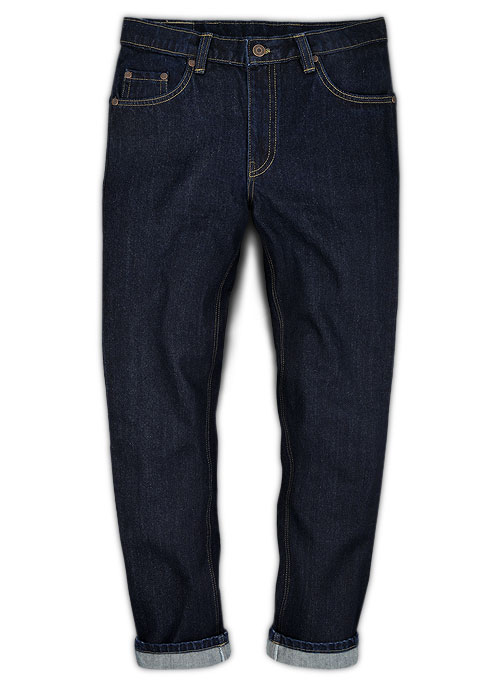
Stretch Denim
You may discover that stretch denim jeans have a super-soft texture. Stretch denim jeans are made of a hybrid material consisting of denim and an elastic material. In other words, they aren’t made entirely of denim; stretch denim jeans are constructed with an elastic material as well.
Most stretch denim jeans are softer than those made of traditional denim. The elastic material used in their construction changes their physical properties. Jeans made of an elastic material are both stretchier and softer.
When shopping for stretch denim jeans, check the tag to see which materials are used in its construction. Some stretch denim jeans are made of lycra, whereas others are made of polyester. The exact ratio of this elastic material to denim can also vary. Fortunately, you can find this information on the tag. Alternatively, if you’re shopping for stretch denim jeans online, read the product description.
The Fit
The way in which your jeans fit can affect how soft they feel. If they fit too tight, they may feel stiff and uncomfortable to wear. Tight-fitted jeans are restrictive, which can make them feel stiff.
Granted, the fit doesn’t physically change the properties of jeans; it just affects how you perceive them. When your jeans fit too tight, they’ll have little or no excess material. Instead, they’ll restrict your body. If you’re trying to find a pair of super-soft jeans that are comfortable to wear, choose custom-sized jeans from MakeYourOwnJeans.
New vs Worn-In
It shouldn’t come as a surprise to learn that worn-in jeans are typically softer than new jeans. Like with many other garments, jeans become softer the more you wear them.
Because worn-in jeans are softer, you should consider wearing a new pair of jeans around the house for a day or so. If you buy a new pair of jeans and discover that they are stiff, wearing them around your home will break them in. Of course, you can always wear them outside your home as well. Just remember to break in your jeans so that feel stiff and not rigid or hard.
Another way to break in a new pair of jeans is to wash and dry them. Washing and drying a pair of jeans will help to break them in. For a superior level of softness, you can turn up the heat. Using the hot water setting on your washing machine and the hot air setting on your dryer will break in your jeans more quickly so that they feel softer.
In Conclusion
The level of softness exhibited by a pair of jeans can be affected by many different factors. If they are hard washed, they’ll feel softer because they are made of pre-soaked denim. Stone washing can lead to a similar level of softness, and worn-in jeans are usually soft as well. These are just a few reasons why some jeans are softer than others.


